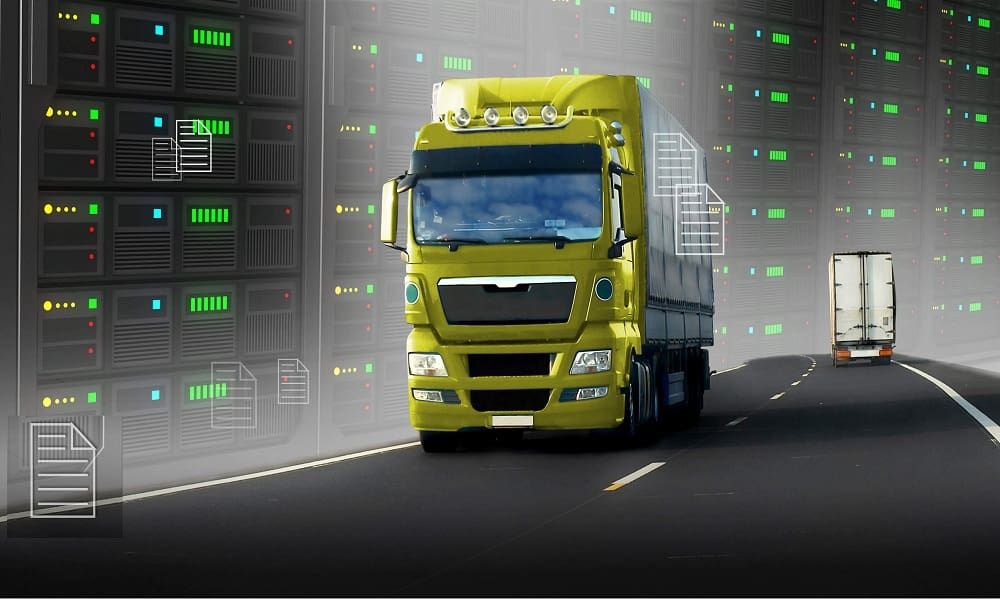Internet of Things, IoT Services & Solutions in New Zealand- OptiTrac

What Is Fleet Management System And Its 3 Benefits
During heavy rains in London, Company XYZ fell behind their deliveries, costing the firm a lot of money. The predicted weather forecast had failed to inform the drivers about the situation, and there was a delay. This could have been easily prevented with a fleet management system.
If your business deals with several vehicles, investing in a fleet management system is wise. A fleet management system improves fleet or vehicle management, allowing organisations to manage all information associated with their vehicles and other assets.
Managing a fleet of vehicles can be extremely tedious from a cost and operational point of view. Vehicles are expensive due to high maintenance and fuel, and this makes it challenging for businesses to monitor visibility into their daily shipping operations. It is estimated that fleets usually waste at least 5 to 10 percent of their annual budgeted dollars.
Since fleet management is crucial to a company’s success, it is essential for reducing transportation costs and other complexities. This is where a fleet management system comes in.
In today’s blog, we will discuss how a fleet management system works and how businesses can improve their fleet management.
What Is Fleet Management?
Businesses that rely on commercial vehicles to function have to invest in some form of fleet operations and fleet management. Fleet management aims to supervise all fleet performance and maintenance to increase productivity, maximise efficiency, and help the business run as smoothly as possible.
Usually, fleet managers are in charge of overseeing fleet operations. They are tasked with responsibilities around driver safety, vehicle maintenance, fuel consumption, fuel costs, driver management, asset utilisation, route planning, and so on. This is done to improve company productivity, counter challenges encountered in the fleet, and effectively utilise resources.
These days, businesses and fleet management companies use vehicle telematics and fleet management software to boost fleet efficiency and reduce operational costs.
What Is Fleet Management Software?
A fleet management software is a digital platform used to monitor and manage a company’s fleet of vehicles. It acts as a centralised dashboard that helps fleet managers oversee the performance metrics, understand driver activity, gain real-time insights, and leverage this information to make important business decisions.
For instance, a fleet management system lets fleet managers track where drivers are located on the route in real-time. The software can be used to understand whether drivers are doing their jobs efficiently or wasting time, etc.
Fleet management systems also provide insight into daily and hourly vehicle availability, weather alerts, delivery updates, strategic route changes, traffic, accumulated on-road hours, etc.
Most fleet management systems also provide regular reports such as ongoing maintenance costs, weekly fuel and mileage logs, technician and driver performance summaries, etc. This data is usually very tedious and time-consuming to derive manually. Thus, fleet management systems can make the process easier.
The insights and value of fleet management systems can be significant to businesses and make a substantial difference in the company’s fleet effectiveness.
How Is Fleet Management Evolving?
Fleet management has evolved significantly after the Internet of Things (IoT) advancement. With the help of the Internet of Things, there is access to connected and safer vehicles through the use of engine sensors, new tools, automation, and so on. This helps in streamlining operations.
With IoT and fleet management comes a new world of features, such as improved safety, better compliance, reduced operational costs, etc.
As fleets bring on more vehicles and regulations continue to change, the abundance of data can require more administrative attention from fleet managers. This data can become challenging to monitor manually. Thus, this is where fleet management systems come in handy.
Analysing fleet data, identifying opportunities, and creating accurate progress reports require special skills that fleet management software is equipped with. This means that a robust fleet management system can be of great help to fleet managers and businesses. It simply increases the efficiency of the fleet manager while decreasing their workload.
Organisations like OptiTrac have an extensive range of customised hardware, platforms, fleet management services, and so on., with a commitment to deliver the future of digital connectivity to companies and help them optimise their operations.
Benefits Of A Fleet Management System
Businesses have reported that managing a fleet of vehicles can be daunting, irrespective of the fleet size. This is why more than 75 percent of fleet managers rely on fleet management software and vehicle telematics to support their day-to-day activities.
Fleet management systems can provide access to real-time visibility into the operation of fleet vehicles while increasing driver satisfaction and retention rates, decreasing fuel usage, and so on.
Here are some reasons why businesses should get a fleet management software:
1. Decreased Operational Costs
Businesses that don’t use fleet management systems track their expenses manually, which can be highly inefficient and prone to many errors. On the other hand, a fleet management system can reduce vehicle OPEX and improve driving habits, route optimisation, decrease fuel usage, and reduce operational costs. Besides, using a fleet management system can increase the lifespan of a vehicle, maximise output, and reduce unnecessary updates.
2. Improved Output
Most importantly, fleet management systems improve overall output. Vehicles are the backbone of certain businesses. Thus, the more efficiently a company’s fleet performs, the better the company functions.
Fleet management systems make it easy to track metrics like vehicle maintenance, driver performance, route optimisation, reduced downtime, and so on. As a result, the benefits can be shared across the supply chain, which benefits the whole company.
3. Manage Regulatory Compliance
Companies that use fleets to conduct business need to follow many rules and comply with the state, local, and federal authorities.
For instance, the Federal Motor Carrier Safety Administration (FMCSA) has provided strict limitations that govern when drivers can be on-road, underlining their safety. Federal law also mandates drivers to use ELDs to log on to their road hours digitally.
These regulatory compliance laws can be effectively streamlined with the help of fleet management software. It can keep the fleet manager and the company updated with the changing regulator landscape, prevent non-compliance issues, and avoid fines and penalties.
The Bottom Line
Several fleet management systems are available on the market, and businesses should conduct their research before investing in fleet management software. It is important to note that fleet management systems can only do so much to improve operations, but a dedicated team should always monitor the dashboard.
Frequently Asked Questions
Q1. What does Fleet Management Mean?
Fleet management refers to the overall functions to keep a fleet (vehicle) running efficiently and on time. Thus, it can be defined as the processes used by fleet managers to monitor the vehicle’s activities and make informed decisions.
Q2. What is the purpose of Fleet Management?
Fleet management aims to increase efficiency and productivity and improve safety for the organisation’s fleet and drivers. This is achieved through combined efforts of vehicle tracking, reporting on fuel consumption, management and maintenance of vehicles, and monitoring driver behaviour.
Q3. What are the types of Fleet Management?
There are several types of fleet management depending on the company’s needs. These include fuel management, driver management, health and safety management, vehicle tracking and diagnostic, vehicle maintenance, tachograph management, etc.
Similar Posts

5 Top IoT Tools To Check Out In 2022
The experts predict that the number of active IoT devices will exceed 25.4 billion in 2030. It is......

What Is Project Management Software And What Does It Do?
If you are a budding entrepreneur or a project manager, the right project management software will change your......

4 Challenges Faced In IoT For Remote Management
The Internet of Things has become a hot topic of discussion and debate worldwide. According to a report......
